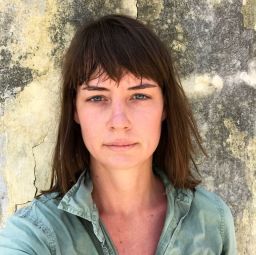Editor’s Note: Alice Driver is a freelance journalist and translator whose work focuses on migration, human rights and gender equality. She is currently based in Mexico City. Driver is the author of “More or Less Dead: Feminicide, Haunting, and the Ethics of Representation in Mexico.” The views expressed in this commentary are solely the author’s.
A constant, poetic and fierce love of immigrants and refugees marked chef, writer and storyteller Anthony Bourdain’s life, now tragically ended at the age of 61. He was a tireless advocate for the underdog. He was acutely aware that most of the people who prepare our food – who feed us and wash our dishes – are immigrants.

I first encountered Bourdain’s scorching, irreverent voice in his 1999 article in The New Yorker, “Don’t Eat Before Reading This.” He described his path to becoming a chef and his “love [for] the sheer weirdness of the kitchen life: the dreamers, the crackpots, the refugees, and the sociopaths with whom I continue to work; the ever-present smells of roasting bones, searing fish, and simmering liquids; the noise and clatter, the hiss and spray, the flames, the smoke, and the steam.”
When I read his 2000 bestseller “Kitchen Confidential,” I was a Spanish major at Berea College in rural Kentucky, and I was both waitressing and volunteering as a translator, activities that put me into daily contact with immigrants from Mexico and Central America.
I saw their sweat, heartbreak and struggle as they worked toward the American Dream. At the time, I scribbled this quote from Bourdain’s book in one of my notebooks: “No one understands and appreciates the American Dream of hard work leading to material rewards better than a non-American.”
Bourdain was a rebel and a misfit, and he used his writing, his TV shows and his platform to defend equality for all, and he did it with a sense of humor that split the world wide open and made even his fiercest critics laugh. In his 2011 book “Medium Raw: A Bloody Valentine to the World of Food and the People Who Cook,” he wrote, “Male, female, gay, straight, legal, illegal, country of origin – who cares? You can either cook an omelet or you can’t.”
He forced a conversation in the US that was a long time coming – one in which Americans had to think about the dissonance between our love of Mexican food and culture and its influence in the US in relation to our immigration policies. In his 2014 essay “Under the Volcano” he wrote, “We love Mexican people – as we sure employ a lot of them. Despite our ridiculously hypocritical attitudes towards immigration, we demand that Mexicans cook a large percentage of the food we eat, grow the ingredients we need to make that food, clean our houses, mow our lawns, wash our dishes, look after our children.”
Bourdain also stood up to bullies, including President Trump, but he did it with a sense of humor, defending the humanity of immigrants while also saying of Trump, “He eats his steak well done. I think that really settles it.” While he was critical of Trump’s policies, Bourdain wanted to know and understand Trump supporters. In April 2018, he traveled to rural West Virginia and wrote, “The people I met there were unfailingly kind, and forgiving of my liberal tendencies.”
He filmed the episode at a time when political tensions were high as “a plea for the understanding of the people whose personal histories, sense of pride, independence, and daunting challenges deserve respect.” He realized that breaking bread with Trump supporters could help those of us living in a divided country recognize our common roots in this nation of immigrants.
Asking for help
The suicide rate in the United States has seen sharp increases in recent years. Studies have shown that the risk of suicide declines sharply when people call the national suicide hotline: 1-800-273-TALK.
The International Association for Suicide Prevention and Befrienders Worldwide also provide contact information for crisis centers around the world.
What was most beautiful about Bourdain, who could be a brutish, globe-trotting cowboy at times, was watching his constant, hard-fought evolution as a human being.
In December 2017, in the wake of sexual harassment allegations against several famous chefs, he posted “On Reacting to Bad News” on Medium. He wrote, “In these current circumstances, one must pick a side. I stand unhesitatingly and unwaveringly with the women. Not out of virtue, or integrity, or high moral outrage – as much as I’d like to say so – but because late in life, I met one extraordinary woman with a particularly awful story to tell, who introduced me to other extraordinary women with equally awful stories.”
That woman was girlfriend Asia Argento, and May 2018, as the #MeToo movement was gathering force, he tweeted his support for Argento, who had accused Harvey Weinstein of rape. He wrote, “When you went on record, @AsiaArgento you were sure this day would never come, that you would be crushed, that you were alone. And yet you did it anyway.”
Anthony Bourdain fought for those who persisted, who persevered, those who took on powers greater than themselves, those who at any moment might be crushed by the weight of life. The fact that it may have been the weight of those very sorrows that crushed him, that he could defend others with deeply felt sincerity and strength even as he struggled with his own demons is a message to us all.
Get our free weekly newsletter
We must heed that message and remember to defend and care for immigrants, refugees, sexual assault victims, and all of those who are vulnerable. As Bourdain so deeply understood and made clear in his work again and again, the only thing that can save us is recognizing and embracing the humanity of others.






